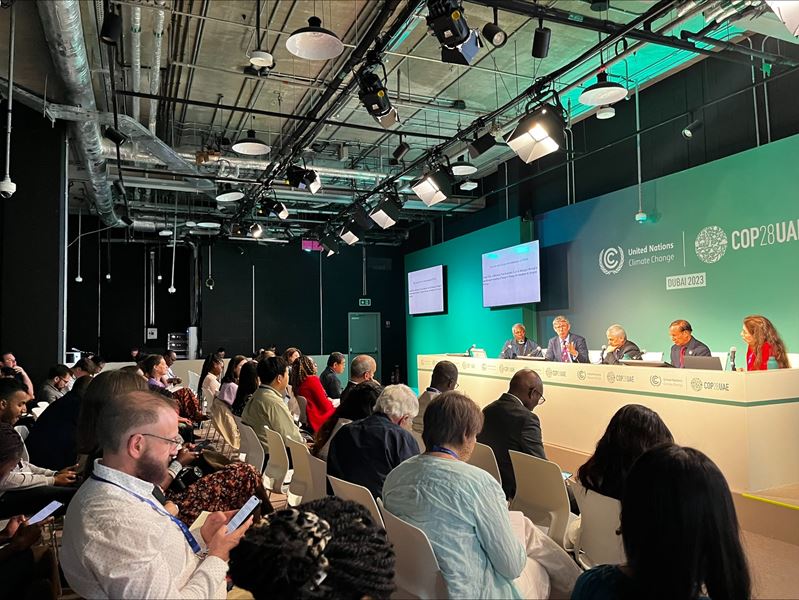Reflecting on the first Faith Pavilion at COP28
13 Dec 23
How has Faith been incorporated into COP28?
Religious and spiritual communities have been recognised by the UN (United Nations) as essential to the fight against climate change, and since January the Interfaith Coordination Group on Climate Change has been preparing for faith-based perspectives to be better integrated into COP28.
Pre-consultations have been hosted throughout the year to help faith-based organisations understand the objectives of COP28, and to hear their views. In November, a High-level Faith Leaders meeting was held to harness and sustain their collective wisdom, influence, and spiritual guidance around raising awareness about climate change.
The UN Environment Program (UNEP) and the Muslim Council of Elders, in close collaboration with the COP28 Presidency, have also been working with faith-based organisations to establish the first Faith Pavilion at COP28 as a dedicated space for different faiths, traditions, and perspectives to come together to achieve a better future for our planet and humanity.
How important are interfaith approaches?
At the inauguration of the Faith Pavillion both Pope Francis and Egypt's Grand Imam of Al-Azhar, Ahmed al-Tayeb spoke of the need for interfaith approaches.
Pope Francis said, “It is important that religions, without falling into the trap of syncretism, set a good example by working together: not for their own interests or those of one party, but for the interests of our world. Among these, the most important nowadays are peace and the climate.”
Both religious leaders then signed an interfaith statement addressed to COP28. This called for collective global transformative action to limit global warming to 1.5 degrees Celsius — a key goal of the 2015 Paris Agreement — and outlined 13 calls to action. This included asking governments to address the burden of climate change on human health, especially in the most vulnerable and fragile communities, something Caritas Australia is heavily advocating for at COP28 with our new report “Unheard, Uncharted: A holistic vision for addressing 'non-economic' loss and damage”.
What has been happening at the Faith Pavillion?
The New York Times wrote of the Faith Pavilion bringing something to COP28 that’s being sorely lacking: hope. Throughout the conference, the Faith Pavilion has established itself as a place to connect with religious representatives and activists dedicated to environmental protection and climate justice, while engaging new audiences on innovative solutions to the climate crisis.
Caritas Australia and its international partners have been involved in many of the major sessions including the launch of the statement from faith leaders on Loss and Damage.

The statement was a global call from religious leaders for the new loss and damage fund to be established and run in a way that’s fair and just, targeting the global inequality of climate impacts. At this launch Caritas Internationalis Secretary General Alastair Dutton talked about the importance of non-economic loss and damage referencing the ‘Unheard, Uncharted’ report.
A further session saw faith leaders express support of the Fossil Fuel Non-Proliferation Treaty, which is a civil society movement to stop fossil fuel exploration and expansion, phase-out existing production and support a just transition to renewables.

Archbishop Peter Loy Chong, Head of the Catholic Church and President of Caritas in Fiji talked eloquently about the current situation facing those in the Pacific as their islands experience increased cyclone activity, salination of freshwater and soil following storm surges, as well as loss of coastlines and land. A moral case for the ending of fossil fuel use was made, with an international, interfaith approach heavily advocated for.